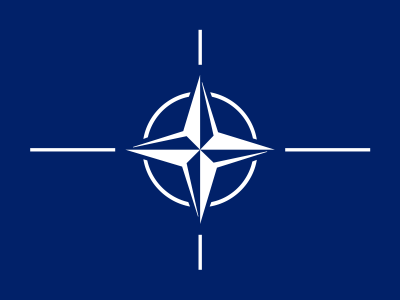NATO Preps “Biggest Military Build-Up On Russia’s Borders Since Cold War”

Playing “a dangerous game,” NATO pushes allies to send more troops and military equipment to Eastern Europe
NATO is pushing all allies to deploy more troops and military equipment to Russia’s borders, further ratcheting up tensions as the West prepares for “its biggest military build-up on Russia’s borders since the Cold War,” as Reuters observed.
“France, Denmark, Italy and other allies are expected to join the four battle groups led by the United States, Germany, Britain, and Canada to go to Poland, Lithuania, Estonia, and Latvia, with forces ranging from armored infantry to drones,” Reuters reported.
“With the U.S. openly talking [about] a war with Russia, the continued deployments seem far from a purely defensive measure.”
—Jason Ditz, Antiwar.com“The battle groups will be backed by NATO’s 40,000-strong rapid-reaction force,” noted Deutsche Welle, “and if need be, further follow-on forces, for any potential conflict, which could move into Baltic states and Poland on rotation.”
Prior to Wednesday’s North Atlantic Council meeting, NATO Secretary-General Jens Stoltenberg told Reuters that the military commitments would be “a clear demonstration of our transatlantic bond.”

The U.K. was the first to release the specifics of its plan: the nation will deploy 800 troops alongside tanks and drones, according to the Wall Street Journal. “That battalion will be defensive in nature, but it will be fully combat-capable,” British defense secretary Michael Fallon told the newspaper.
This latest show of force follows the United States’ March announcement that it plans to greatly increase its troop numbers in Eastern Europe, and fulfills NATO’s July promise to bolster its military presence on Russia’s borders, purportedly in response to Russian aggression.
Diplomats also suggested it was only partly about sending a message to Russia, and that the real point of the latest push is to get a bunch of nations involved as a “message” to U.S. presidential nominee Donald Trump, who has complained the U.S. is spending too much defending Europe and that Europe isn’t doing enough on its own.
That underscores the cynical nature of the deployments, and indeed the sort of thing adding to the sense of NATO being obsolete, that they feel they can afford to organize major deployments just for the sake of scoring political points in member nations’ elections.
These moves are shortsighted, to say the least, wrote Gilbert Doctorow of the American Committee for East-West Accord: “America’s steady campaign of expanding NATO, […] its vilification of Russia, and its information war based on lies” are part of “a dangerous game” that is pulling all sides inevitably closer to war, Doctorow argued.

